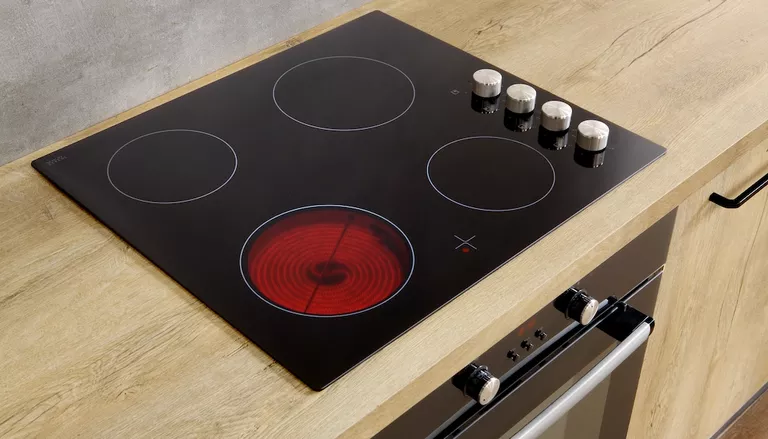Find local pros for your project
Tell us what you’re looking for and we’ll show you pros right for the job, with prices.
Updated
When choosing a range or stove for your kitchen, you have two main options: gas or electric. Both options have pros and cons. Ultimately, you’ll find that the best one depends on your budget, cooking techniques, needs, and preferences.
Keep reading to learn about the unique features that gas and electric stoves offer.
Electric stoves | Gas stoves | |
Cost | Typically a little bit cheaper upfront costs, but may be more expensive in the long run | Usually a little more expensive upfront, but may be slightly cheaper in the long run |
Energy source | 220 to 240-volt outlet | Dedicated gas line |
Energy efficiency | More efficient, especially electric induction stovetops | Less efficient |
Installation difficulty | Easier to install | Harder to install |
Ease of cleaning | Easy to wipe down smooth surface | Requires removing grates and burners |
Health risks | N/A | Known health risks |
 Electric stoves often have a flat cooking surface made of ceramic, glass, or a blend of both. They usually have heated metal coils that transfer heat to your cookware, allowing you to cook your food.
Electric stoves often have a flat cooking surface made of ceramic, glass, or a blend of both. They usually have heated metal coils that transfer heat to your cookware, allowing you to cook your food.
To use an electric stove, you need to connect it to a 220- or 240-volt outlet. This is different from the 110-volt outlet used for other appliances.
Chances are, your kitchen may already have this option. If not, you can hire a pro to assemble an electric stove hookup.
Gas stoves allow you to cook over an open flame. With a gas stove, you're able to control the heat intensity. You’ll usually find that the burners have different flame sizes and varying heat levels.
Gas stove tops also require a dedicated gas line. If your kitchen doesn't have a gas line, you can hire a pro to install one and hook up your stove.
When it comes to choosing the best type of stove for your home, you need to keep in mind several things.
Does your kitchen already have a 240-volt outlet to plug an electric stove? Or does it already have a dedicated gas line for a gas stove? You can always get a pro to install either, but you’ll save more money if you choose a stove that’s compatible with the setup.
If you prefer doing slow cooking over a bit of heat, an electric stove may be right for you. On the other hand, a gas range offers more versatility than an electric stove. You can control the temperature better, sear meat, and cook in high heat.
You may also want to think about the cookware you already have. If they aren’t induction-friendly, you may opt for a gas stove instead. That way, you won't have to buy new pots and pans.
Gas stoves tend to cost more upfront. Electric stoves are cheaper, and installing an outlet for them versus installing a gas line will also help to bring down costs. But rather than just looking at the upfront expenses, also consider the operational costs.
Electricity can be more expensive than gas. If you plan to use your electric stove a lot (and for long periods of time), you might face higher electricity bills.
Gas, on the other hand, is usually cheaper in most places. Depending on where you live, it may be a more budget-friendly option in the long run.
If you love both electric and gas stoves and can’t decide what to get, why not opt for a dual-fuel range instead? Dual fuel ranges feature gas cooktops and electric ovens — bringing together the best of both worlds.
Some chefs and home cooks may prefer gas stoves because of their versatility. However, bakers may laud the electric oven because of its various features.
Ultimately, the best kind of stove for you depends on what you want and what you need. Weigh your options, consider what you like, and choose the stove that fits your cooking style and preferences.
If you need help installing your new stove, an electric outlet, or a gas line, get someone skilled to do it for you. Download the Thumbtack app to find a top-rated appliance professional who can help you set up your new stove.
Tell us what you’re looking for and we’ll show you pros right for the job, with prices.